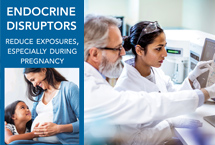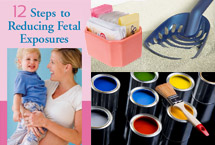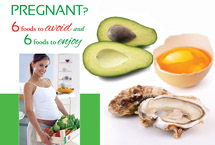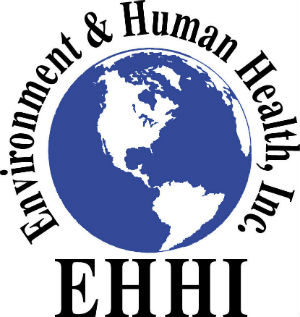Fetal Exposures
New Brochure Released

EHHI releases Endocrine Disruptors: Reduce Exposures, Especially During Pregnancy
Download Full Text of BrochureDownload Press Release
The new publication calls for major reductions of endocrine-disrupting chemicals. Endocrine disruptors (EDs) are chemicals that interfere with the normal function of the endocrine system, a network of glands and organs that secrete hormones. While it is true that endocrine-disrupting chemicals are now ubiquitous in our environment, understanding where they can be found makes it easier to avoid many of them and reduce exposures, especially during pregnancy.

12 Steps to Reducing Fetal Exposures
Download Full Text of BrochureAlthough obstetricians warn pregnant women not to drink alcohol and not to smoke during pregnancy, we are learning that there are other chemicals and products that women should be careful about during those critical nine months. The Environmental Working Group found more than 200 chemicals in the cord blood of babies tested right after birth.

Pregnant? Foods to Avoid and to Enjoy
Download Full Text of BrochureWe are learning that there are foods like shellfish that women should be careful about during pregnancy. Avoid foods in cans, which are often lined with the endocrine-disrupting chemical BPA. Instead, choose fresh foods like avocados, which are rich in folic acid.
